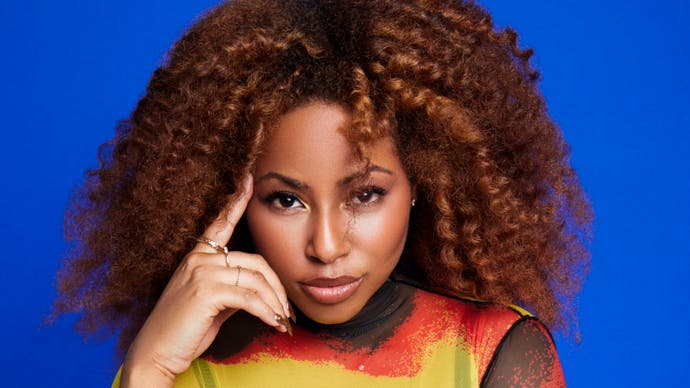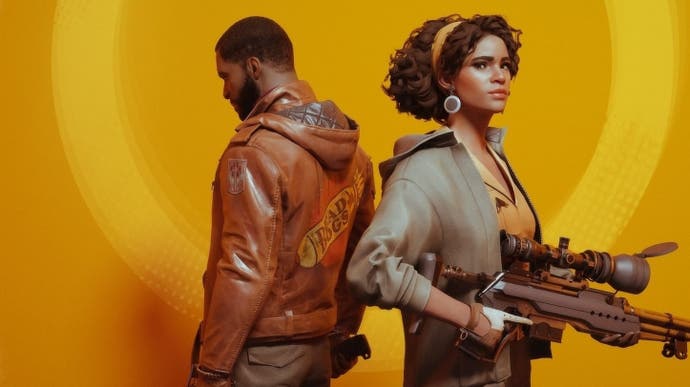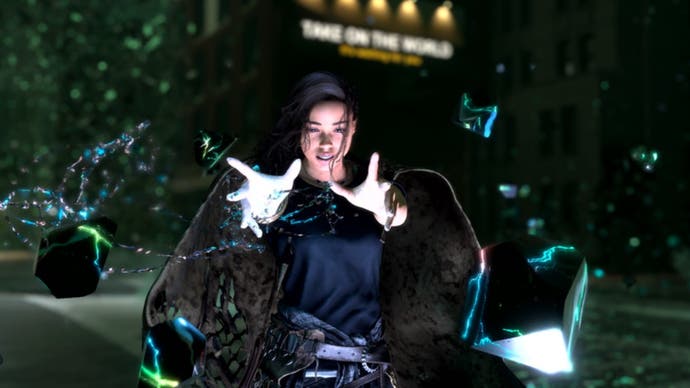Black Girl Gamers' Jay-Ann Lopez on the importance of Black representation in fantasy
Black girl magic.
Ahead of the release of Square Enix's Forspoken, there were concerns about representation. Frey, the game's Black female protagonist, was described in a 2021 preview session as having a "hip-hoppy kind of walk", as well as being "an orphan" and "very angry", raising eyebrows at the perpetuation of negative Black stereotypes.
Before the game's release earlier this year, paid consultants were asked to play a pre-release build of the game, including a representative from Black Girl Gamers, a 10,000-stong community organisation with lived experience of Black cultures and heritage that consults on various elements of the games industry, and whose founder Jay-Ann Lopez I caught up with to find out more.
"Due to the nature of our contract, we cannot disclose specific suggestions, however, we were pleased to see that some of our input was reflected in the final version of the game," Lopez wrote in a Twitter thread after Forspoken released. However, some suggestions from the group had not been included, Lopez said, including those regarding "colourism and texturism" (a preference for Eurocentric standards of hair: smoother, looser hairstyles over tighter curls, braids, or afros).
"As a trusted voice in gaming, diversity, and inclusivity, we were brought in. We had an opportunity to weigh in on the game - especially given that it is one of the first games to feature a fantasy female protagonist of Black descent.
"The importance was key to us and our community and this was communicated during our consultation. Forspoken centres itself on the representation of women of all different experiences, and due to that - the game has unfairly received extreme and unjust criticism about its quality."
The group's consultation work on games typically includes feedback on character representation, lore, aesthetic authenticity, digital marketing strategies, and how to avoid simply furthering the status quo, where games have centred white male gamers. "That's really important for gaming companies specifically, because that's been the history for the industry for a number of decades," Lopez says.
For Forspoken specifically, the consultation focused on authenticity and how Black audiences may respond to Frey's character. Despite this consultation process, however, the general response to Frey upon Forspoken's release was far from positive, and the source of internet memes that criticised the game's corny dialogue.
Speaking to Eurogamer, Lopez says she believes the game wouldn't have received this same level of criticism had Frey not been Black. "In the gaming industry, there are these dude bros that come out of the woodwork whenever they feel like Black and Brown people are stepping out of their place," Lopez tells me. "They feel they own the gaming industry and gaming culture. And part of that is because gaming media outlets and publishers have allowed them to feel that way for such a long time. They feel empowered to tank a game [that has a Black protagonist]. If it had a white person, they would probably have not felt the same way.
"All the people I've spoken to who have played the game have enjoyed it on some kind of level and thought it doesn't deserve the flack that it got. We in the industry need to do a good job of really examining how people review games and the ability for a, frankly, racist audience to tank a game's performance. That's really, really sad."
I ask Lopez if she feels the game's audience wasn't ready to accept a Black woman leading a fantasy game. "It's not about readiness. I think [the audience] don't want to," she says. "But being honest, it's not a surprise."
The response to the game paralleled the response to Black Girl Gamers working as a consultant, Lopez adds. "We had to block so many pages, so many anime avatars on Twitter, because they were undermining the fact we were consultants in the process, basically saying that Black women have no space in the consultancy process. So it's not a shock to me at all."

Forspoken isn't Square Enix's only big release this year. Next month will see the release of Final Fantasy 16, the latest in its long-running series that has been criticised for its complete lack of Black characters. The game's director, Naoki Yoshida, previously said the lack of racial diversity fitted the "isolated nature of this realm" as well as its Medieval Europe inspiration.
Black fans of the series were disappointed by this response, and Lopez says she felt similar. "If you can have magic, dragons, all of these features, there's no reason why you can't have Black and Brown people in the game," she says. "Also, Black and Brown people were around in Medieval and Middle Age Europe, which is where a lot of these fantasy games pull their inspiration from for their setting and lore.
"We really need to educate developers, get them to expand their perspective on Medieval times and actually understand real history. [That's] not to say that Black and Brown people were the majority in those times, but they were there. So to ignore them, and especially in a fantasy setting where anything can exist, makes no sense. It's a really poor excuse."
Lopez believes change needs to come from within studios to improve representation, something consultants can support. "Even if you do have Black and Brown people on your team, they can provide insight. But again, they're not necessarily the consumer, they'll look at things from a development perspective," she says.
"Game studios need to understand they don't know everything. Just because it's worked in the past, it's not necessarily going to work in the future. They need to understand there will be change, especially since the internet and social media has democratised a lot.
"You need to be ahead of that change as opposed to still focusing on the white male demographic, because eventually you're going to box yourself in and not pay attention to change that's going to happen that could benefit your company. You shouldn't be ostracising any part of your market that enjoys games.
"In a fantasy setting, it makes no sense to have a toad that can shoot fireballs, and you have no Black and Brown people. It makes no sense."

So what does good representation look like? "To me, it looks like it has been well thought out," Lopez says, citing Arkane's Deathloop as a prime example that landed very well with non-white players.
"It looks seamless, it feels seamless. And that's how it's supposed to feel because that's ultimately, how white consumers feel all the time. I've never heard a white consumer complain about white representation in a game and how it reflects on them, because they're not marginalised. And because they are 'the norm', they've never really had to think about that.
"But when it comes to Black and Brown characters, that's the first thing that's on our mind. And we can immediately tell when there's been no research, no further investment in this character other than putting brown skin on it."
One area that is seeing improvement, however, is character creators. Here, developers can provide the tools for people of all communities to play as themselves via a diverse range of tools - something that hasn't always been offered in the past.
"Character customisation is getting much better," Lopez says. "I still think there are studios that have issues with Black hair textures and skin tones - when it comes to undertones. And there shouldn't be in this day and age. But it's important because everyone deserves to be represented."
This is why consultancy work can be so effective, Lopez believes, whether it confirms to developers something they know already, or reveals something they don't.
"You don't know what you don't know," says Lopez. "And there's no harm in carving out budget to find out what you don't know. If it turns out you knew that, great. But if you feel like you know it, and you didn't then, that's where the issue is."


